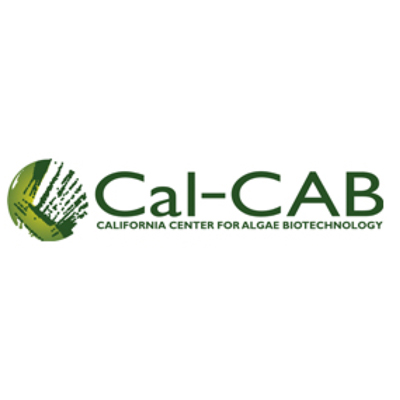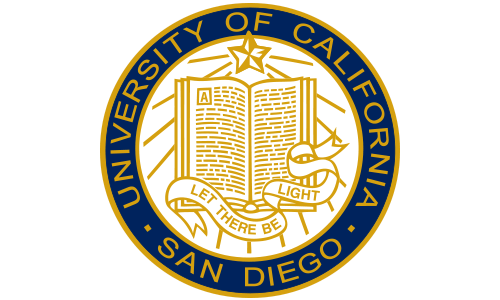From sunlight and CO2 in algae to products that address food and energy problems
Food and fuel together comprise 75% of the world's economy, and much of scientific research today focuses on harnessing new and reliable resources to ensure food and energy security. Substances created from photosynthesis make one of the most promising resources for the future. California Center for Algae Biotechnology (Cal-CAB) at the University of California, San Diego, uses algae to develop innovative, sustainable, and commercially viable solutions for the renewable production of food, energy, green chemistry, and bio-products. Algae, photosynthetic but less explored than plants, serves as a great model for understanding photosynthesis, and demonstrates great potential for enabling new resources for not only food and energy but also for water remediation and conservation. To bring research into the marketplace and communicate its implications to the broader society, the Center collaborates with international research scientists in biology, chemistry, engineering, economics, and policy while training young students and educating the public.
Cal-CAB is directed by Dr. Stephen Mayfield who has studied algae for over three decades. Long before the price of fossil fuel increased and climate change surfaced as a global issue, he was realizing the potential of algae for photosynthetic biomanufacturing. The first product he made with his team were therapeutic proteins, and two years ago he developed potential malaria vaccines made in algae. Working across disciplines to realize the impact of research and find relevance within society, researchers at Cal-CAB are developing a new biomanufacturing platform to increase our food and energy production in efficient and novel ways, making great strides in analyzing algal gene expression, understanding algal physiology, and creating other practical applications. Starting with sustainable surfboards, nutritional supplements, and even vaccines and therapeutic proteins, the Center continues to expand its knowledge of algae and their potential, inching closer to meeting the world’s food, water, energy, healthcare and material problems.
Current research includes:
- Building the tools to enable algae biotechnology: Modern biomanufacturing is based on the engineering of single cells like bacteria, yeast, and mammalian cells to produce valuable products. These include everything from beer, bread, and cheese to industrial enzymes, therapeutic proteins, and even plastic precursors. To allow algae and other photosynthetic single celled system to compete with these existing industrial organism we need a set of state-of-the-art molecular genetic tools, and Cal-CAB is developing and distributing those tools through the world.
- Algae Recombinant Proteins: Recombinant proteins are used for everything from food processing enzymes, to therapeutic proteins and nutraceuticals. In close collaboration with industrial partners we are developing recombinant proteins for a variety of uses. Once such group of nutritionally important proteins come from colostrum, or part of mothers’ breast milk, and these proteins help protect babies from getting bacterial or viral diarrhea, as well as act as important stimulators of immune development. Diarrhea is actually the number one killer of children on the planet where antibiotics are scarce; and five million children die each year from dehydration resulting from diarrhea. The Center is currently developing anti-diarrheal nutraceuticals based on colostrum proteins produced in algae. These nutraceuticals will also be used in food animals to replace antibiotics, and help create a healthier system of food and antibiotics.
- Green Chemistry: Surfboards are made of two components, the inside consists of foam blanks made mainly from polyurethane that comes from petroleum, and the outside is covered in fiberglass and resin. Because petroleum is simply fossil algae oil, essentially anything that comes from petroleum can be recreated with algae oil with a bit of clever chemistry. Researchers at the Center have collaborated with organic chemists to create a formula that allows them to take oil from algae, convert it to polyols, which cross links into polyurethane. Currently, the team has made three surfboards using algae oil for foam inside cores, and are working to make the entire surfboard sustainable. Bio-products like these will be beneficial, as obtaining petroleum products from algae will make the system carbon neutral and biodegradable. Based on these formulas, the Center aims to increase the number of practical applications where algae can be a viable resource.

Bio
The California Center for Algae Biotechnology (Cal-CAB) is a consortium of academic researchers from around the State of California that aims to apply lab discoveries to the industrial world through robust research and development in biology, chemistry, and engineering. The mission of the California Center for Algae Biotechnology (Cal-CAB) is to support development of innovative, sustainable, and commercially viable algae-based biotechnology solutions for renewable energy, green chemistry, bio-products, water conservation, and CO2 abatement.
The Center incorporates international research scientists from the fields of biology, chemistry, engineering, economics, and policy. It also trains young scientists, educates the public, collaborates with partners, and facilitates discussion with regional, state, and national policy makers regarding the use of algae for energy independence and conservation of land and water, while encouraging the highest standards of academic excellence and objectivity.
Directors:
Stephen Mayfield, Ph.D.
Professor of Molecular Biology and
Director Cal-CAB
UC San Diego
Research areas: gene regulation in eukaryotic algae and the use of this algae for the production of human therapeutic proteins and as a platform for biofuel production, and developing molecular tools for algal genetic transformation.
Michael Burkart, Ph.D.
Professor of Chemistry and Biochemistry
Associate Director Cal-CAB
UC San Diego
Research areas: developing systems for the study of natural product regulation and production.
Greg Mitchell, Ph.D.
Research Professor
Associate Director Cal-CAB
Scripps Institution of Oceanography
Research areas: algae commercial applications, including quantification of yields of bioenergy molecules in the light-temperature-nutrient matrix that regulates algal physiology, and numerical modeling of algal growth and biomass yields for designing photobioreactors that optimize commercial yields.
For more information, visit http://algae.ucsd.edu/

In the News
US Department of Energy
Los Angeles Times


